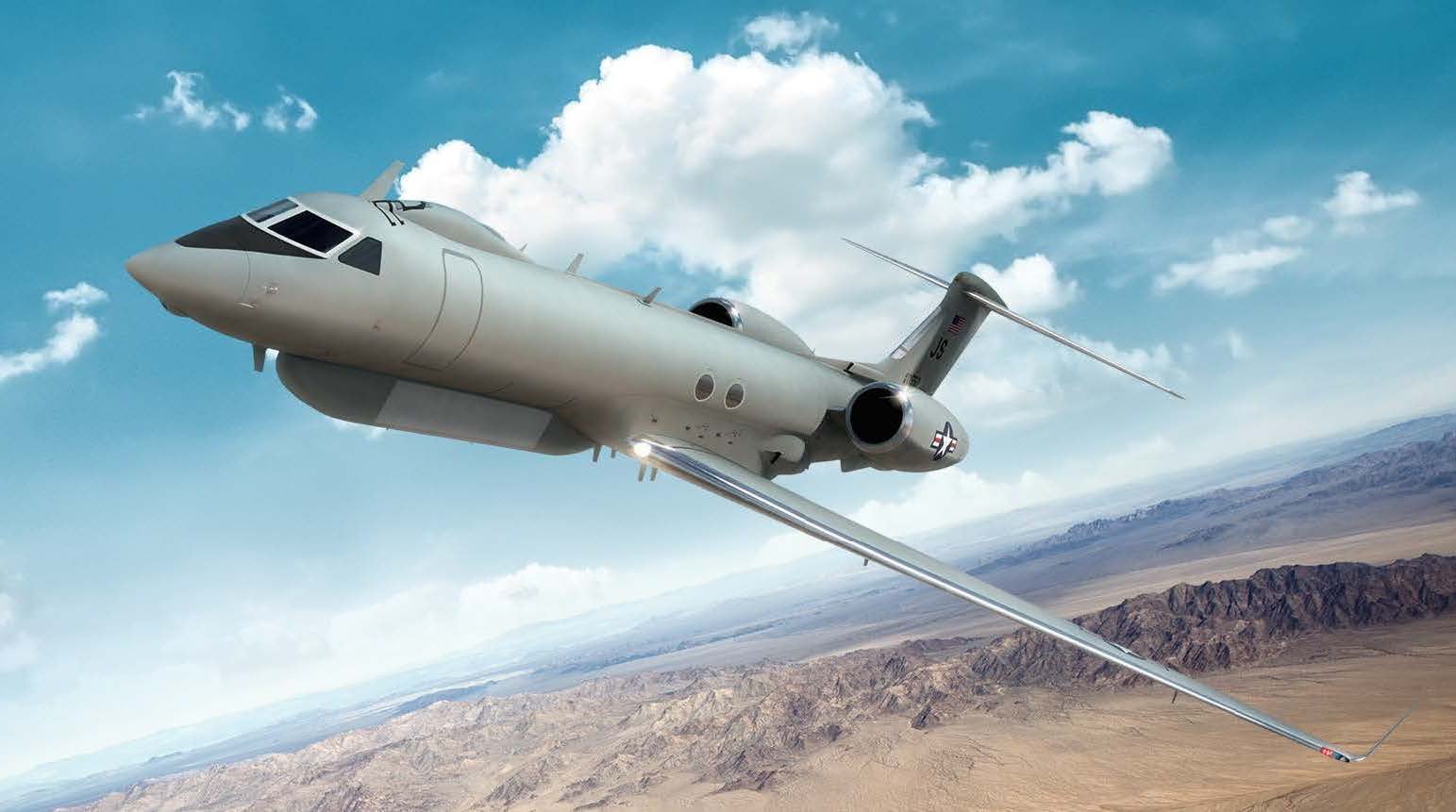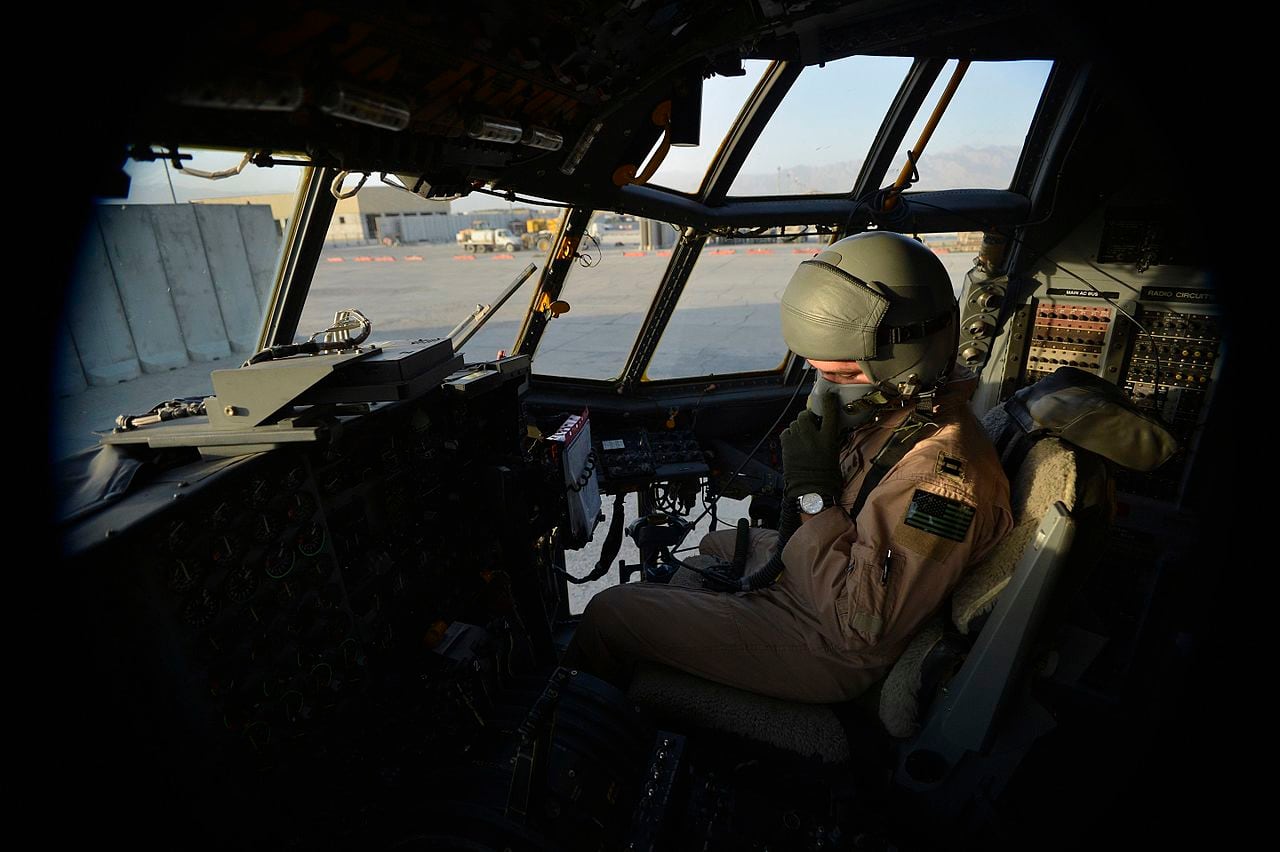WASHINGTON — L3 Technologies has been given an unprecedented power to choose the U.S. Air Force’s next Compass Call airframe, in this case the Gulfstream G550. And if it turns out to have made the wrong choice, the company’s reputation will be on the line, the company’s top executive said Wednesday.
For the Compass Call crossdeck program, now termed EC-X, the Air Force decided on an unorthodox acquisition strategy: Hire a systems integrator to move the electronics off the existing EC-130H aircraft and into new airframes, which will be selected by that contractor instead of the service.
After multiple bid protests and accusations over a possible conflict of interest, the Air Force in September awarded L3 a contract for the Compass Call crossdeck program. And, as expected, L3 chose Gulfstream’s G550.
Michael Strianese, chairman and CEO of L3 Technologies, said the company has endeavored to be an “honest broker” during its dealings with Gulfstream and Boeing, which put forward the Boeing 737 as an alternative to the G550 offered by General Dynamics subsidiary Gulfstream.
RELATED

Boeing was one of two companies that protested the award to L3, alleging the Air Force had expressed preference for the G550 and that L3’s ties to Gulfstream on other programs constituted a conflict of interest. The dispute didn’t exactly paint L3 in a favorable light, which Strianese said was “unfortunate,” given the decision is risky for the company no matter which airframe it ultimately chose.
“It doesn’t really matter which airplane it is as long as it’s what works, and it’s kind of our reputation out there if we pick the wrong one,” he said during an Oct. 11 event sponsored by Defense One.
“Either Boeing or GD is going to be pissed off at us, whoever is not being picked. And if you get it wrong, then the plane is going to be late, and then the customer is going to be pissed off.”
RELATED

Asked for specifics about how L3 conducted its market research on the Boeing 737 and G550, Strianese added: “I can’t speak to the specs for classification reasons, but I can tell you I’ve been through them with our people, and they are very specific about what an airplane has to do and what this particular aircraft has to do in terms of concealment of operations and range and a whole bunch of metrics on physical performance.”
The next step will be for L3 to arrive at a deal with Gulfstream for G550 aircraft, which will be modified by the systems integrator, said Lt. Gen. Arnold Bunch, the Air Force’s top uniformed acquisition official.
“L3 did market research and did analysis of platforms. They briefed us on the results of that, and their results were that the G550 was the platform that needed to be bought, and they’re working with Gulfstream to go down that path,” he told Defense News in an Oct. 10 interview.
One of the major reasons why EC-X has been such a contentious program is the view that the airframe that emerges victorious for Compass Call would have a higher likelihood of winning similar recapitalization programs, such as the JSTARS recap or future efforts to replace the RC-135 Rivet Joint.
“What we’re doing with this recap, there’s likely to be more after this,” Strianese said. “There is some wisdom to just having the same aircraft in the fleet, for maintenance and logistics.”
And if the EC-X acquisition is successful, it could become a model for future programs. That would be a huge win for L3, and Strianese said his company is more capable than original equipment manufacturers in quickly and effectively performing military systems integration work.
“When those planes get recapitalized, if they give that work to an OEM, they’re going to pick themselves to do the mission integration, and they usually don’t do it well,” he said.
The Air Force is not actively considering using an EC-X type of acquisition strategy for an upcoming program, Bunch said.
However, he added that he “will not rule it out. But I don’t want anyone on the next program to come in and say: ‘Go do it the way you did Compass Call.’ ”
Rather, the Air Force reserves the right to give its systems integrator the power to select an airframe if it makes sense for that program, he said. “I want the flexibility to use all of the authorities that we have.”
Valerie Insinna is Defense News' air warfare reporter. She previously worked the Navy/congressional beats for Defense Daily, which followed almost three years as a staff writer for National Defense Magazine. Prior to that, she worked as an editorial assistant for the Tokyo Shimbun’s Washington bureau.








